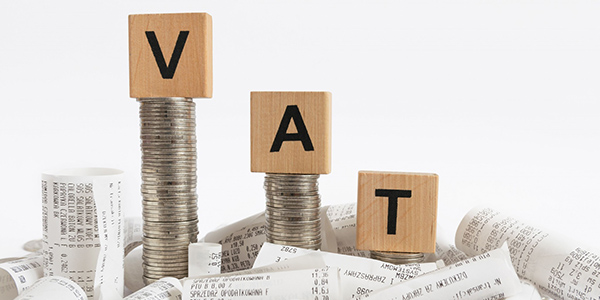Partial Revision of the Swiss VAT Act
What is changing? Who is liable to VAT? Is a foreign business liable? Is there a change for foreign businesses in general? How high is the VAT tax rate?

© iStock.com/ysuel
Originally, a comprehensive revision of the Swiss VAT Act was initiated, supposed to simplify the rules for persons liable to the VAT. The first package of this revision entered in to force in January 2010. The second package was targeting the implementation of a uniform tax rate and abolishing most tax exemptions. However, this second package did not find a majority in Parliament, leading to a new partial revision of the VAT Act in September 2016, which has effectively been passed by Parliament.
1. How does it work at the moment?
VAT is a tax added on consumption by individuals and charged to the producer, manufacturer or dealer, which have to hand on this additional charge to the tax authority. Being liable to VAT requires you to periodically invoicing the added charge on your goods with the Federal Tax Authority (FTA). Imports are liable to VAT as well and they are charged when “entering” the domestic space, whereas exports are not liable based on the assumption that they will be charged a VAT in the country of destination. The law charges different tax rates based on social, cyclical or other grounds. Currently, Swiss VAT has three different tax rates. These are an ordinary tax rate of 8%, a reduced tax rate for daily goods of 2.5 % and a special tax rate for accommodation services of 3.8 %.
The evaluation whether there is a liability to VAT is based on the annual turnover. At present, there is VAT exemption when the annual turnover in Switzerland is below 100’000.00 CHF. Now not only small enterprises benefit from this exemption but also competing foreign businesses that have a higher worldwide turnover but are below this threshold within Switzerland.
Foreign businesses liable to VAT are required to have a tax representative with its seat or domicile in Switzerland. When registering with the VAT register of the FTA these foreign persons have to provide security for the VAT. So far, this security had been calculated based on the estimated amount of VAT due for each year. Since 1st of August 2017, the calculation of this security changed. Now, the security is calculated by taking 3 % of the taxable turnover in Switzerland. The security will be between 2’000.00 CHF as a minimum amount and 250’000.00 CHF as a maximum amount. The FAT may change the calculation methods for particular cases. This changed calculation method is likely to result in a reduction in the upcoming security payments for foreign businesses.
2. What will change in January 2018 respectively 2019?
This partial revision does not significantly affect Swiss businesses directly. It aims at indirectly enhancing competition between Swiss and foreign businesses by reducing negative side effects for Swiss businesses.
The revision has two main pillars. First, the basis for tax liability will be the worldwide turnover instead of a national turnover. Liable to VAT will be all businesses established in Switzerland or foreign businesses that provide services in Switzerland, which are providing services that are not exempted from this tax and have a worldwide turnover of at least 100’000.00 CHF. The second pillar will not enter into force until the 1st of January 2019. Starting this day, persons become liable to VAT if they send small shipments exempted of import tax (= import tax is not higher than 5.00 CHF) to Switzerland in a total amount of 100’000.00 CHF per annum. This will pre-dominantly affect mail-order businesses.
In addition to the two main pillars, there are several other smaller changes all entering into force on 1st of January 2018. These changes will affect all persons liable to VAT and not pre-dominantly foreign businesses. Notable in this regard are the new tax rates. These are 7.7 % ordinary VAT tax rate, 3.7% VAT tax rate for accommodation services and 2.5% reduced VAT tax rate for daily goods.
3. What does this mean?
The latest changes to the Swiss VAT Act has huge external effects. Resulting in VAT tax liability for several new companies with their seat outside of Switzerland. The FTA expects about 30’000 new and mostly non-Swiss businesses becoming liable to Swiss VAT. Nonetheless, an obligation to register with the VAT register remains a prerequisite. Non-Swiss companies with business relations in Switzerland are therefore well advised to check whether the new rules apply to them.